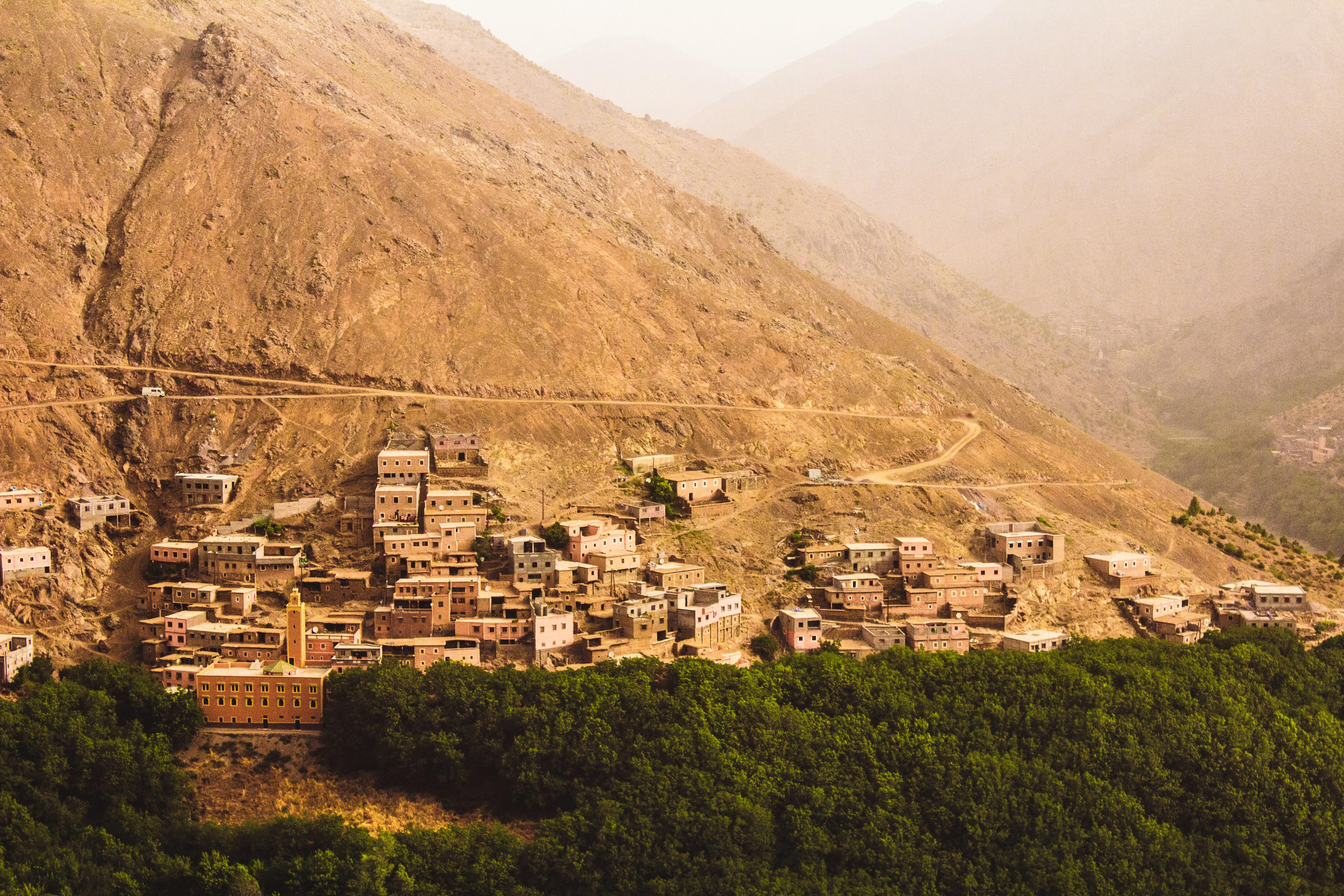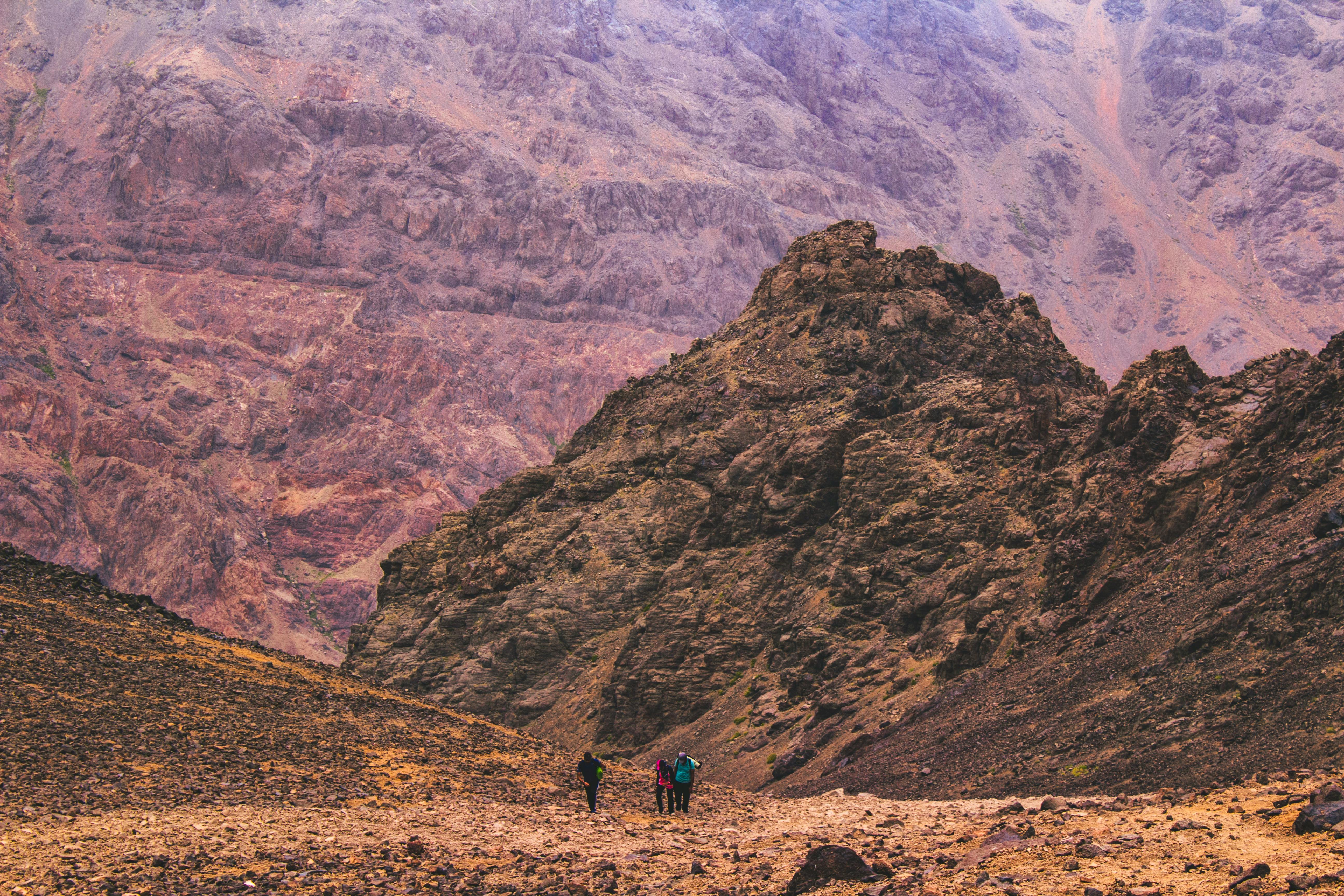Mt Toubkal: Interview with Local Guide Yasmine
Alan: Hi Yasmine, it's great to meet you! Can you tell us a bit about yourself and what you do?
Yasmine: Hi Alan, it's wonderful to meet you too! I am Yasmine, a mountain guide from Morocco. I love exploring the great outdoors and sharing my passion for the mountains with others. I guide visitors on hikes, treks, and climbs throughout the beautiful Atlas Mountains, and I am always excited to show them the amazing natural wonders and rich cultural heritage of my country.
Alan: That sounds amazing! What inspired you to become a mountain guide, and how did you get started in this profession?
Yasmine: Well, growing up in Morocco, I was always drawn to the mountains and the outdoors. I loved hiking and climbing, and I wanted to share that love with others. So, after finishing my studies, I decided to pursue a career as a mountain guide. I completed a rigorous training program and got my certification as a professional guide. Since then, I have been guiding visitors from all over the world on unforgettable mountain adventures in Morocco.

Alan: That's really impressive, Yasmine. What are some of the most popular hikes or climbs that you guide visitors on, and what makes them so special?
Yasmine: There are so many amazing hikes and climbs in the Atlas Mountains, but some of the most popular ones are Toubkal, Siroua, and Mgoun. These peaks are all over 4000 meters high and offer stunning views and challenging climbs. But what makes these hikes special is the chance to explore the Berber villages and culture along the way. Visitors get to meet the local people, taste their delicious food, and learn about their fascinating traditions and way of life.
Alan: That sounds like an incredible experience! Speaking of culture, can you tell us a bit about the culture in Morocco and how it influences your work as a guide?
Yasmine: Absolutely! Morocco is a country with a rich and diverse culture that is deeply connected to the mountains and the natural world. As a guide, I strive to share that culture with visitors and help them understand the connection between the land and the people who live on it. I always encourage my clients to be respectful of the local culture and traditions and to learn as much as they can from the people they meet. By doing so, they can have a more meaningful and fulfilling experience in Morocco, and contribute to the sustainable development of the local communities.
Alan: Yasmine, I've heard that Moroccan food is delicious! Can you tell us more about the local cuisine in Imlil and the High Atlas Mountains?
Yasmine: Moroccan food is indeed delicious, and the cuisine in Imlil and the High Atlas Mountains is a delightful mix of traditional Berber and Moroccan flavours. Some of the most popular dishes include tagine, which is a slow-cooked stew made with meat, vegetables, and a blend of spices, and served with crusty bread. Another favourite is couscous, a dish made of steamed semolina, often served with vegetables, meat, and a flavorful broth.
In the mountains, you'll also find dishes like msemen, a type of Moroccan pancake or flatbread, and harira, a hearty soup made with tomatoes, lentils, and chickpeas. For a sweet treat, try enjoying some Moroccan mint tea with honey and almonds, served alongside a plate of traditional pastries.
Alan: What about vegan options?
Yasmine: Moroccan cuisine is quite diverse, and there are definitely delicious vegan options available. Many traditional dishes, like vegetable tagine and couscous, can be prepared without meat and are naturally vegan. Another option is zaalouk, a flavorful eggplant and tomato salad that is often served as a side dish.
In addition, most Moroccan meals include a variety of vegetable-based side dishes, like salads, lentil dishes, and cooked vegetables, which are vegan-friendly. While trekking through the mountains, we can also arrange for vegan meals to be prepared at the guesthouses and family homes where we stop to eat. Just let me know your dietary preferences in advance, and I'll make sure that we can accommodate your needs.
Alan: Getting into the trip details, what sort of kit do you recommend people bring?
Yasmine: The weather can vary a lot on the mountain, with temperatures ranging from highs of 30°C in Marrakech to lows of around -10°C (with patches of snow) on the summit of Toubkal, especially between December and the end of March. You'll need to bring a range of clothing, including base-layer t-shirts, fleece/soft-shell and waterproof jackets, insulated jackets, spare clothes for Marrakech, trekking trousers, shorts, and swimwear (optional). You'll also need warm gloves and a hat, walking boots, and two pairs of thick wool hiking socks. Other important items include a large rucksack, daysack, water bottles, sunglasses, sunscreen, glasses/contact lenses (if needed), a thin sleeping bag, bathroom items including a travel towel, electronics such as a head torch, travel adaptor (French plug style), phone and charger, lipsil, and a book or mp3 player (optional).

Alan: Sounds like quite a lot! But guests don’t need to carry all of this, do they?
Yasmine: No, the local guides use mules to carry your main bag so that you can just carry a small bag with water, sun cream, and waterproofs while trekking.
Alan: Makes sense. Can you also share a bit more about the weather & seasons?
Yasmine: Winter season (November – March) can be quite cold on Mt Toubkal, with temperatures on the summit going as low as -20°C. March starts to warm up with a higher chance of rain. Early/late season (April-May and October) have temperatures at lower altitudes reaching 26°C, with little chance of rain. The summit can still go as low as -10°C with wind chill. In summer (June-September), June has a higher chance of rain but still stays warm. July to September are the hottest months with temperatures at the lowest altitudes reaching 30°C. The summit of Toubkal can be as low as -10°C with wind chill.
Alan: That's a great perspective, Yasmine. Thank you so much for sharing your insights with us, and for all the amazing work you do as a mountain guide. It was a pleasure talking with you!
Yasmine: Thank you, Alan! It was my pleasure to share my love for the mountains and my country with you. I hope to see you soon in Morocco for an unforgettable mountain adventure!

Check out other interviews:
Find your next adventure
Why Skyhook?
Join over 27,000 Skyhook adventurers who've used our platform to book directly with our vetted local guides, at local prices (we never markup).
Expert Local Guides
Experienced local guides, handpicked by us.
Best Prices
Never pay a markup on the local guide's price.
Exclusive Club
Earn loyalty rewards every time you travel.
Great Social Vibes
Small group tours provide a richer experience.
Stellar Feedback
Over 2,800 reviews, average of 4.9/5 stars.










